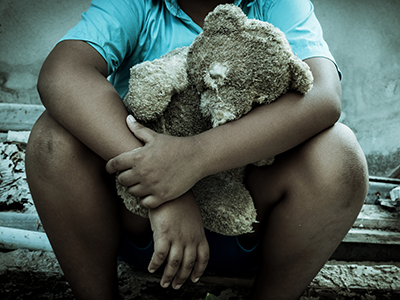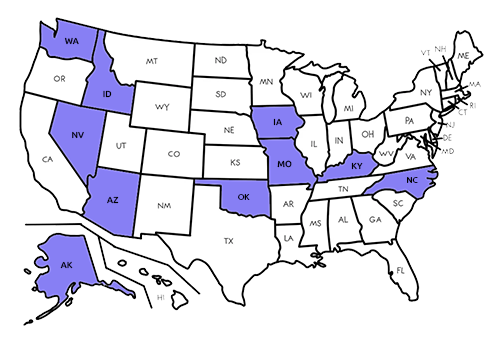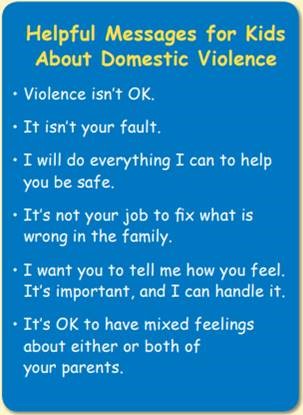Domestic violence is a pattern of behavior that one person in a relationship uses to control the other. The behavior may be verbally, emotionally, physically, financially, or sexually abusive. Many children exposed to violence in the home are also victims of physical abuse.1 Children who witness domestic violence or are victims of abuse themselves are at serious risk for long-term physical and mental health problems.2 Children who witness violence between parents may also be at greater risk of being violent in their future relationships.
 43.8% of Nevada women and 32.8% of Nevada men experience intimate partner physical violence, intimate partner sexual violence and/or intimate partner stalking in their lifetimes.
43.8% of Nevada women and 32.8% of Nevada men experience intimate partner physical violence, intimate partner sexual violence and/or intimate partner stalking in their lifetimes.Oklahoma - 49.10%
Iowa - 45.30%
Kentucky - 45.30%
North Carolina - 43.90%
Nevada - 43.80%
Alaska - 43.30%
Arizona - 42.60%
Washington - 42.60%
Idaho - 42.50%
Missouri - 41.70%

Children may develop a multitude of problem behaviors and mental health disorders such as anxiety and depression. Children who witness domestic violence at this life stage tend to be moody, irritable, act immaturely, experience developmental regression, are overly clingy of their caregivers, are withdrawn from their caregivers, display aggressive behaviors, experience sleep disturbances, do not socialize with other children, and some develop post-traumatic stress disorder. Children who witness and experience domestic violence also have slower neurological functioning which causes poor school performance.
Children who witness domestic violence develop a host of behavioral, emotional and cognitive problems. Children who witness domestic violence exhibit aggressive behaviors, antisocial behaviors, are depressed, are anxious, hold high levels of anger, are hostile, display oppositional behavior, are disobedient, are introverted, have low self-esteem, and have poor relationships with their siblings, teachers, and peers. These youth also perform poorly in school, have low scores on assessments of verbal, motor, and cognitive skills, show a lack of conflict resolution skills, have limited problem solving skills, believe pro-violence behaviors are acceptable and believe in gender stereotypes. Other effects of witnessing domestic violence include bedwetting, poor hygiene, bullying behaviors, immature behaviors, lying, poor impulse control, and an inability to maintain friendships.
Children who experience and or witness domestic violence for the first time during their teen years have less emotional and mental health problems than younger children; this is attributed to their being able to cognitively understand what they see and feel which allows them to develop healthier coping mechanisms. Teens who experience or witness domestic violence perform poorly in school, have high levels of anxiety, become involved in criminal behavior, participate in risky sexual behaviors, have low-self-esteem, blame themselves for the violence and abuse, are suicidal, and become involved in abusive

Each child responds differently to abuse and trauma. Some children are more resilient, and some are more sensitive. How successful a child is at recovering from abuse or trauma depends on several things, including having:
Although children will probably never forget what they saw or experienced during the abuse, they can learn healthy ways to deal with their emotions and memories as they mature. The sooner a child gets help, the better his or her chances for becoming a mentally and physically healthy adult.
"Helpful Messages for Kids About Domestic Violence" image is an exerpt from an NCTSN Flyer, How Does Domestic Violence Affect Children?
Domestic Violence - Nevada Information and Assistance
Domestic Violence Services - Nevada 211
Model Protocol for Cross-Agency Response to Domestic Violence
Teen Dating Violence Awareness & Prevention Materials
Child Welfare and Domestic Violence: The Summit on Intersection and Action | UCLA Pritzker Center
Domestic Violence by State 2022
Domestic Violence Safety Planning Tools
Effects of domestic violence on children | Office on Women's Healt
How Does Domestic Violence Affect Children?
How to Gather Technology Abuse Evidence for Court
NCADV | Domestic Violence in Nevada Factsheet
Teen domestic violence may include digital abuse. Here’s what parents should know
Nevada's Just in Time Training is a web based service program designed to connect foster parents, kinship or other caregivers with training, peer experts and other resources. Questions are answered and practical solutions to care for children are discussed - all from the comfort of your home or office.
If you have difficulty accessing any material on this site, please contact us in writing and we will work with you to make the information available. You can direct your request to JITSupport@USF.edu.